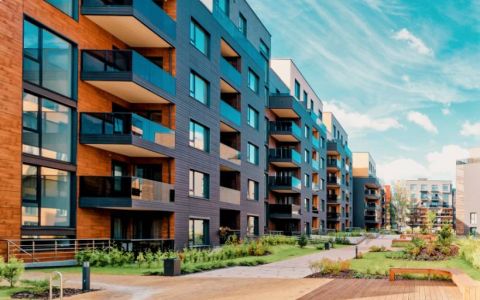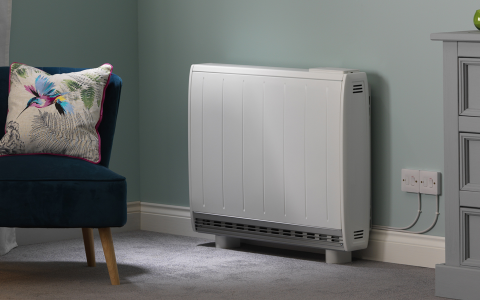Our approved CPD courses
With over 70 years experience in the HVAC sector, Dimplex is keen to assist industry professionals collect accredited hours to meet their CPD requirements. We offer a wide range of CPD training, approved through both The CPD Certification Service and the Chartered Institution of Building Services Engineers (CIBSE), delivered by trained Dimplex presenters for building service engineers, architects and building service professionals.
Our CPDs are designed to help building professionals, whatever the job role, understand different HVAC technologies, from project application to potential routes to compliance. All our presenters have extensive experience within the HVAC industry to better understand your requirements.
CPD topics
SAP 10.2: Compliance with technologies for the electrification of heat in residential buildings
Learn more about compliance with Part L and SAP10.2 modelling for homes, residential apartments and mixed-use developments. This CPD presentation is suitable for anyone who wants to learn more about the Part L and compliant
technologies and understand SAP10.2 modelling in more detail.
Guide to RdSAP: Decarbonising housing stock and the electrification of heat in buildings
In this CPD presentation we will consider the impact of changes to Part L, F and the new EPC guidelines on specification of heating, hot water and ventilation in social housing. This CPD presentation is suitable for anyone in the social housing sector who wants to learn more about electrified heating and hot water solutions.
Part F ventilation – Domestic Buildings Compliance
This CPD explains the need for ventilation and its link with Approved Documents, discussing the requirements of the Part F 2022 update and the three ventilation system types that are available. This CPD presentation is suitable for anyone who wants to learn more about Part F and compliant technologies and better understand ventilation.
Introduction to heat pumps for residential specification
This course is an ideal introduction to heat pumps. The presentation covers a wide range of topics including legislation, heat pump technologies and their application. This CPD presentation is suitable for anyone who needs an introduction to heat pump technology.
Introduction to hot water heat pump technology in new and existing residential buildings
This CPD presentation is an introduction to fully electric hot water heat pump systems. This CPD presentation is suitable for anyone within the construction industry but primarily it is aimed at building service engineers and building services professionals.
Ambient loop systems for multi-occupancy residential and mixed-use buildings
Learn more about ambient networks and how they can help increase the the energy efficiency of residential and mixed-use buildings. This CPD presentation is suitable for anyone who wants to develop an understanding of the benefits of ambient networks in multi-use buildings and improve their knowledge of heat pump technology.
Using fan coil technology to lower whole-life carbon
This course delves into what fan coils units (FCUs) are, the different technologies and controls, and how you can use multiroom arrangements to help lower whole-life carbon on your projects. This CPD presentation is suitable for anyone who needs an introduction fan coil unit technology.
Specification of intelligent heating solutions
This CPD explores the challenges around energy cost, sustainability and carbon emissions of heating in hotels
and Purpose-Built Student Accommodation (PBSA). This CPD presentation is suitable for anyone who wants to learn more about reducing the carbon emissions and energy costs of hotel and student accommodation-type buildings.
Advance your career with Dimplex
Whether you’re looking to refresh your skills or explore new technologies, our expert-led courses provide practical insights and recognised certification.
CPD information
Powering the future
Dimplex has been bringing comfort to people’s lives since the 1940s through the power of electricity and throughout those years M&E consultants and specifiers have one thing in common - a desire to find advanced solutions from someone they can trust. Today, our principal ambition is to deliver market-defining HVAC solutions, supported by a deep-rooted and continuous investment in new ideas, modern design and ongoing innovation through Dimplex and our endorsed brands.
Residential and commercial expertise
Our focus is the design, development and manufacture of energy efficient, reliable heating cooling, ventilation and intelligent energy management solutions for residential and commercial buildings. We utilise our in-depth industry knowledge and experience across every sector from smart electric heating systems employing the latest control, communications and networking technologies to district heating networks encompassing heat pumps, MVHR systems and heat emitters.
For key information that brings value to each stage of your project from inception through to completion

Update your bathroom in a flash
The thought of a bathroom re-model can be daunting, but with the right technology and styling, you can update your tired looking room into a tranquil paradise in next to no time.

Expert Comment: What's the best way to heat a conservatory?
Q: When the cold weather hits, what’s the best way to heat my conservatory?

Residential ventilation: Saving time on design and installation
The importance of suitable ventilation is becoming increasingly recognised, as society and the media have begun to focus on the air quality within our homes. This is because as Part L of the Building Regulations has been updated to save energy by tightening the building fabric, Part F has not been reviewed in turn. This has resulted in poor air quality as air change requirements do not go far enough to remove volatile organic compounds (VOCs) from residential spaces.











